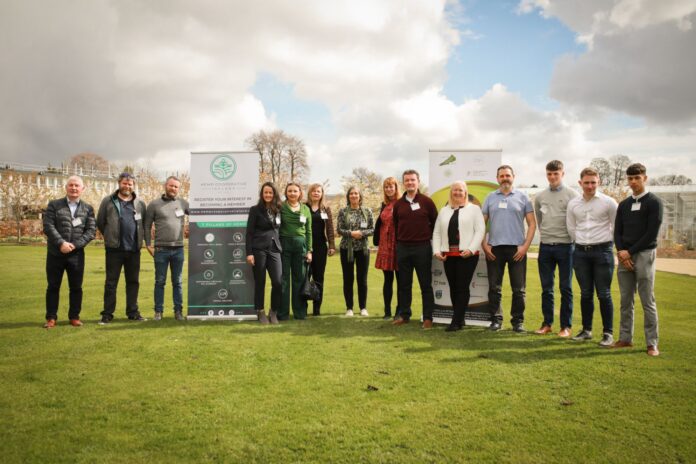HEMP4SOIL: Regenerative farming project
HEMP4SOIL, a one-year project, will explore how growing hemp on local farmers’ land on the Loop Head Peninsula could “vastly improve” soil quality and benefit local biodiversity.
According to Loop Head Together, the results could “potentially help create sustainable income streams for farmers in the future”.
The community-based, local development and farming forum, based on the Loop Head Peninsula West Clare, is of the view that it could provide a product from which the offshoots could inspire the local industry.
How will the project work?
- This experiment surrounds the monitored growth of a HEMP crop on one acre of land per farm over 12 months.
- This experiment is proceeding with the assistance of local farmers. They agreed to allow 1-acre of their land to be used by the experiment for a minimum of 12 months;
- The project’s operational team will manage land for those 12 months;
- The project has received a group hemp cultivation licence to facilitate the carrying out of this experiment;
- The project team will regularly assess soil quality throughout the experiment.
HEMP4SOIL
Hemp4Soil aims to use regenerative farming techniques to improve life in the soil in three ways:
- Soil remediation;
- Microbial life;
- Carbon storage.
The main objectives of the project are to:
- Reduce the presence of chemical fertilisers;
- Improve soil microbial activity;
- Increase carbon content of the soil;
- Provide training opportunities and knowledge transfer along with community dissemination.
The proposed benefits of this experiment include:
- Reducing the presence of chemical fertilisers in the soil;
- Improving soil microbial activity;
- Increase carbon content of soil and reducing carbon emissions;
- Training opportunities and knowledge transfer;
- Spreading the good practice throughout the community;
- Creating the potential for a circular economy solution;
- Exploring the potential for offshoots helping to create local industry.
Regenerative farming
Loop Head Together launched the project at the Irish Hemp Event 2022, which the Hemp Cooperative Ireland organised in association with Teagasc, on Friday, April 8th, 2022.
According to those involved, the experimental regenerative farming project is “the first of its kind in Europe”.
At the launch in the Teagasc Ashtown Food Research Centre, Laura J Foley MSc, introduced the project concept, along with Dr Kate C Randall and Dr Lena Madden.
They are liaising with Laura on the preparation and scientific monitoring of the soil, highlighting the “many potential benefits” to the environment, the farmer, and the wider community.
They pointed to the potential for a follow up ‘Phase 2’ project, which may explore a regulated rollout of hemp cultivation as a ‘farming initiative’.
Furthermore, they revealed that there would be opportunities to look far more closely at the various offshoot industries and circular economy solutions that could arise around the need to lock in the carbon sequestered by the crop.
Solve environmental challenges
Laura, who holds a ‘masters’ in agriculture, from NUIG, is spearheading the project.
She is of the view that hemp has the potential to solve many environmental challenges in a way that is economically beneficial to farming communities.
She stated that incorporating hemp cultivation and regenerative farming techniques into our traditional farming system has “the potential to reduce costly inputs while creating additional revenue streams for farms”.
Another exciting element to this project, surrounds the work of Ennis native, Sinead Madden. She is a PhD candidate from the University of Limerick’s Faculty of Science and Engineering.
Sinead is researching hybrid computational mathematical modelling to ascertain how hemp can be used for carbon sequestration.
Her initial findings suggest that devoting a relatively small quantity of land to hemp cultivation could offset “a significant amount” of national agricultural carbon emissions.
She will work alongside Laura and the Loop Head Together team to prove her theory fully.
Rural & Community Development Officer from Clare County Council Margaret Cotter, attended the launch to show the Council’s support of this experiment.
She said:
“This project is a first in farms in Ireland and has the potential to deliver far-reaching impacts as it progresses.”
“This is a wonderful demonstration of how a small rural community can lead the way in research and real-life practice for climate initiatives and potential carbon sequestration,” Cotter concluded.





